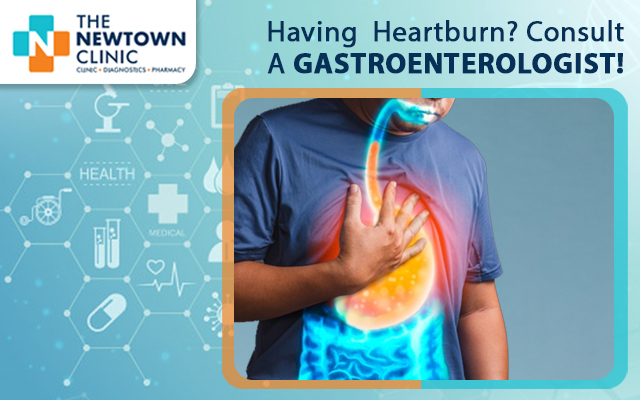Every person sometimes experiences heartburn, which is usually a minor inconvenience. But when does heartburn become a serious health risk?
The difference between heartburn, acid reflux and GERD
First, let’s distinguish between heartburn, acid reflux and GERD (gastroesophageal reflux disease). These terms are often used interchangeably, but have different definitions. Heartburn is a term used to describe the feeling of burning in the chest when acid enters the oesophagus. “Heartburn is a symptom of acid reflux and GERD and usually occurs after eating.” – says the best gastro doctor in Kolkata.
Acid Reflux
Acid reflux occurs when stomach acid returns to your esophagus, irritating the lining of the esophagus, causing discomfort. This can happen when the lower esophageal sphincter (LES) is damaged. LES is a muscle between your esophagus and your stomach and usually opens when food / drink arrives and then closes again to keep the food / drink closed in your stomach for digestion. If the LES doesn’t work properly, stomach acid can leak from your stomach into your esophagus and burn delicate esophageal tissue.
Heartburn and GERD
“GERD is diagnosed when oesophageal tissues become inflamed or irritated due to frequent acid reflux” – says the best gastroenterologist in Kolkata.
GERD can cause serious damage to the oesophagus and eventually progress to Barrett’s oesophagus, the precursor of oesophageal cancer. Although heartburn is the most common symptom of GERD, GERD can also be present without heartburn. Other symptoms include coughing, acid vomiting in the mouth when you bend over, hoarseness (especially in the morning), feeling stuck in your throat, and sore throat. When your heartburn begins to affect your daily life, you may wonder if it’s time to see a doctor about your symptoms. If any of the mentioned symptoms applies to you, it’s definitely time to make an appointment with the best gastroenterologist in Kolkata.
Some of the common risk factors
- You still have symptoms after diet and lifestyle changes
- Certain foods and behaviours can cause heartburn, but if you’ve made changes and your heartburn still doesn’t go away, it’s time to consult a specialist
- If you have persistent heartburn 2 or more times a week
- Even if you take antacids regularly to combat heartburn, you may have damage to the oesophagus caused by stomach acid.
- Over-the-counter medications no longer work
If any of the above mentioned things happens, you may need to consult an expert who can prescribe medication to relieve your symptoms.

